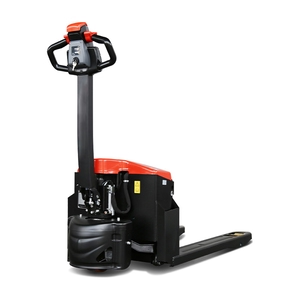Electric forklifts have become an increasingly popular option for businesses looking to cut costs and improve efficiency in their warehouse operations. One of the main reasons why companies are making the switch to electric forklifts is the substantial cost savings that they offer compared to traditional models.
Fuel Efficiency
One of the biggest cost savings comes from the fuel efficiency of electric forklifts. Traditional forklifts run on gasoline, diesel, or propane, which can quickly add up in fuel costs over time. Electric forklifts, on the other hand, run on electricity, which is generally much cheaper than traditional fuels. This can result in significant savings for businesses, especially those that operate multiple forklifts or have high usage rates.
Reduced Maintenance Costs
In addition to fuel savings, electric forklifts also require less maintenance compared to traditional models. Since they have fewer moving parts and don’t rely on combustion engines, electric forklifts experience less wear and tear, resulting in lower maintenance costs. This means fewer trips to the mechanic for repairs and replacements, ultimately saving businesses time and money in the long run.
Longer Lifespan
Another factor to consider when comparing the cost savings of electric forklift versus traditional models is the lifespan of the equipment. Electric forklifts typically have a longer lifespan than traditional forklifts, which means that they can be used for a longer period of time before needing to be replaced. This can result in cost savings for businesses who would otherwise have to invest in new forklifts more frequently with traditional models.
Environmental Benefits
Furthermore, electric forklifts are also more environmentally friendly than traditional models, which can lead to additional cost savings in terms of compliance with environmental regulations. Many businesses are increasingly focused on reducing their carbon footprint and operating in a more sustainable manner. By switching to electric forklifts, companies can reduce their emissions and potentially qualify for tax incentives or rebates for using environmentally friendly equipment.
Conclusion
Overall, the cost savings of electric forklifts compared to traditional models are clear. From lower fuel costs and maintenance expenses to longer lifespans and environmental benefits, there are many reasons why businesses are choosing electric forklifts for their warehouse operations. While the initial investment in electric forklifts may be higher than traditional models, the long-term savings and benefits make them a smart choice for companies looking to improve their bottom line and operate more efficiently.